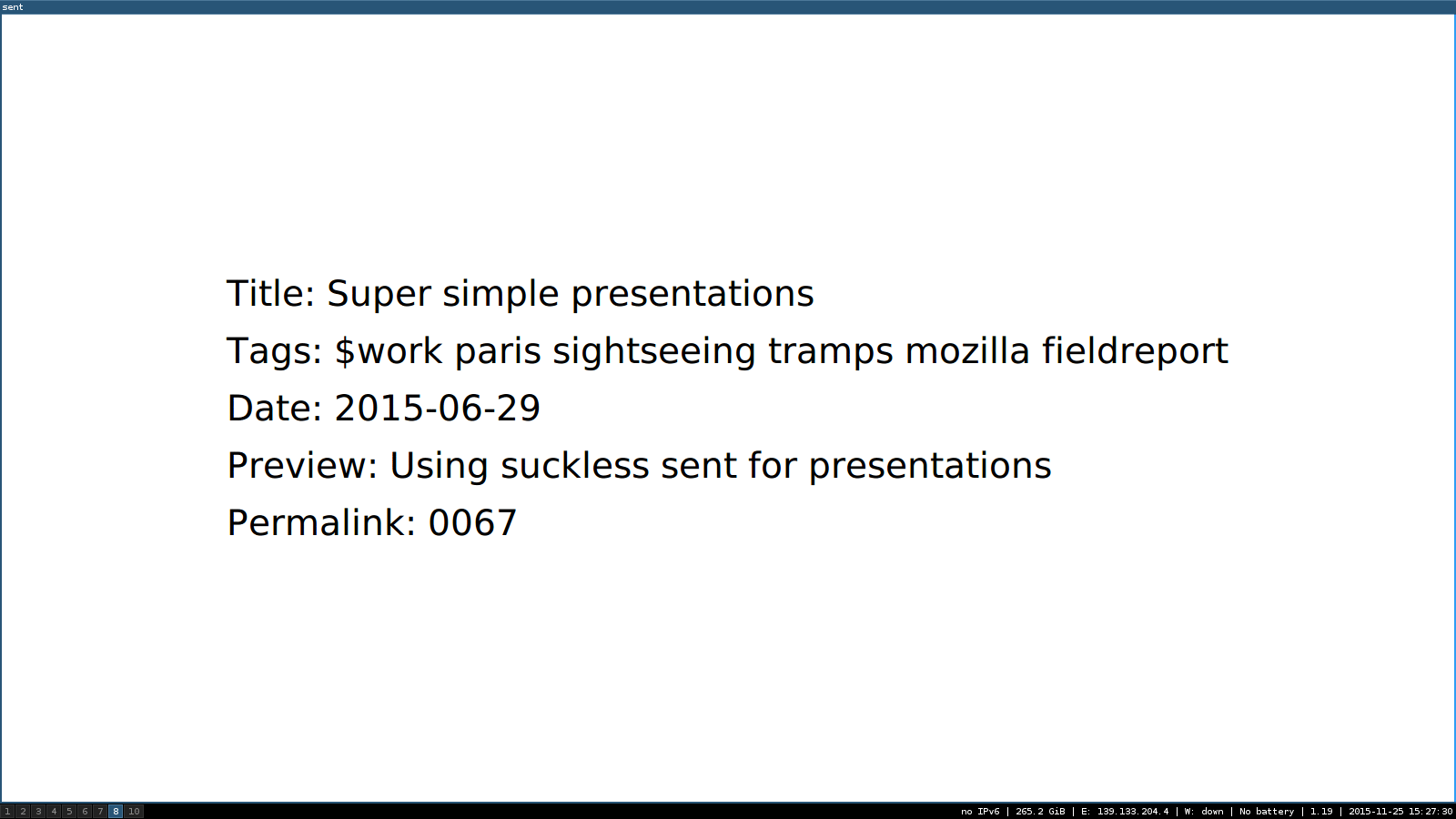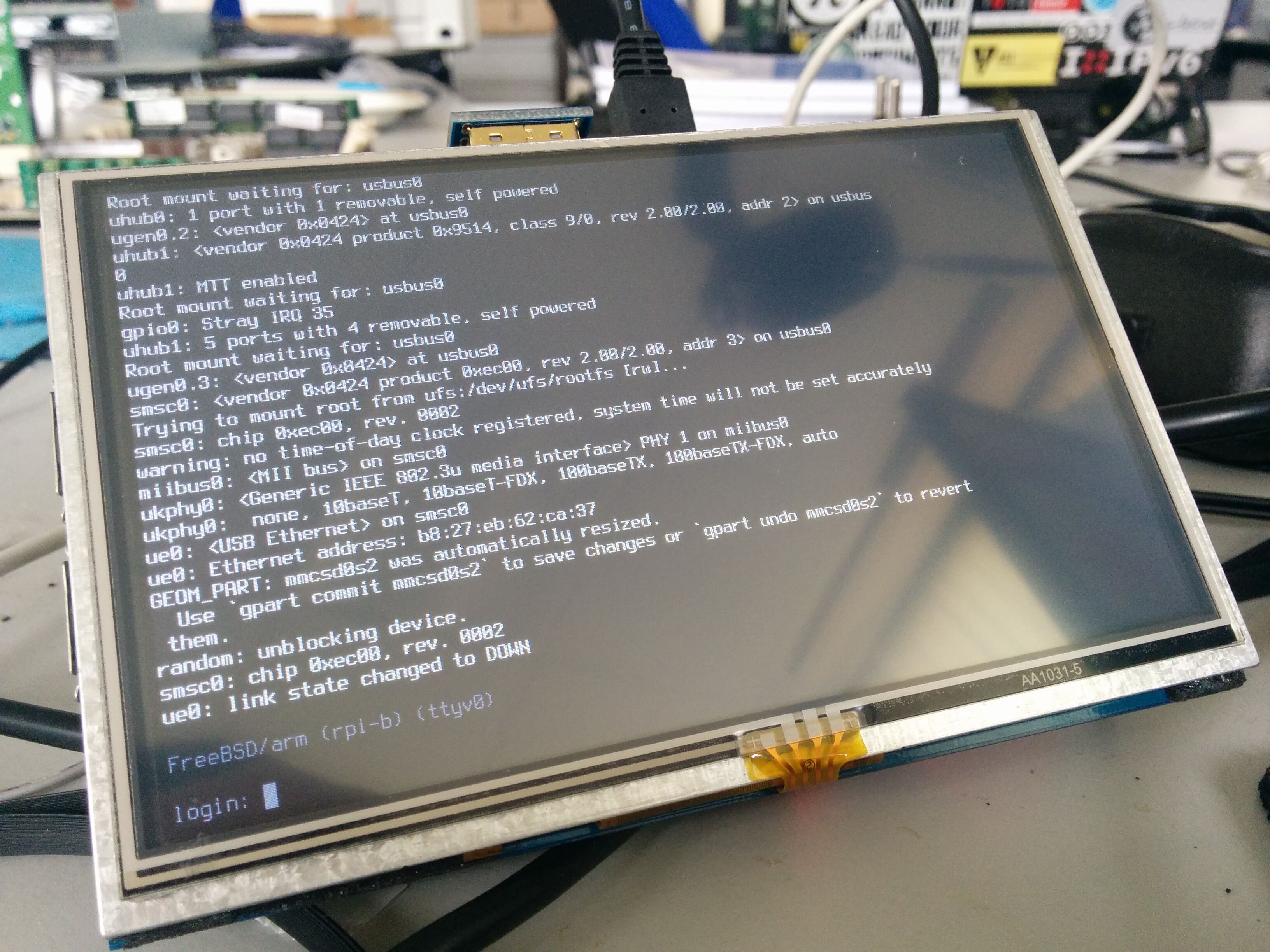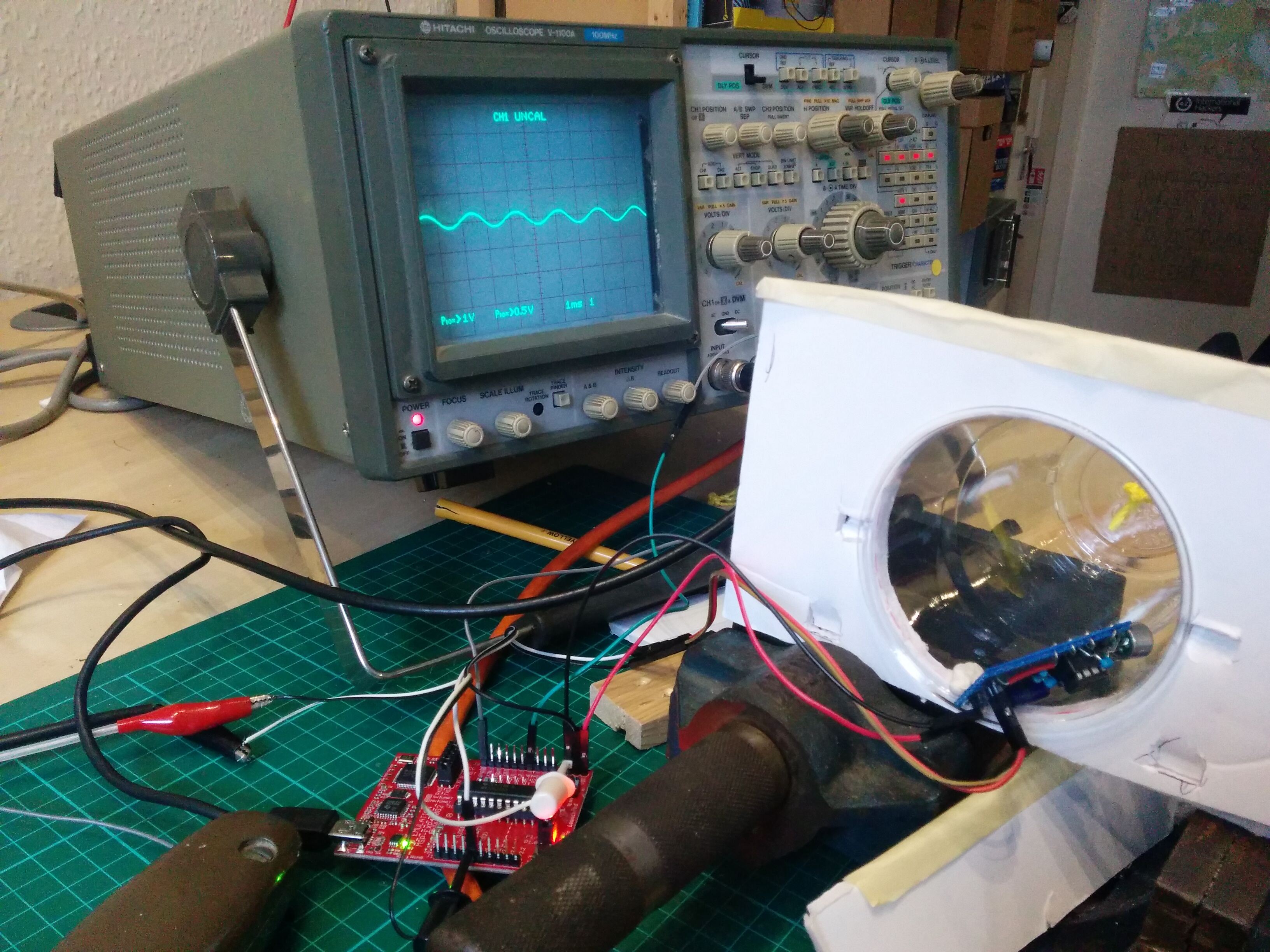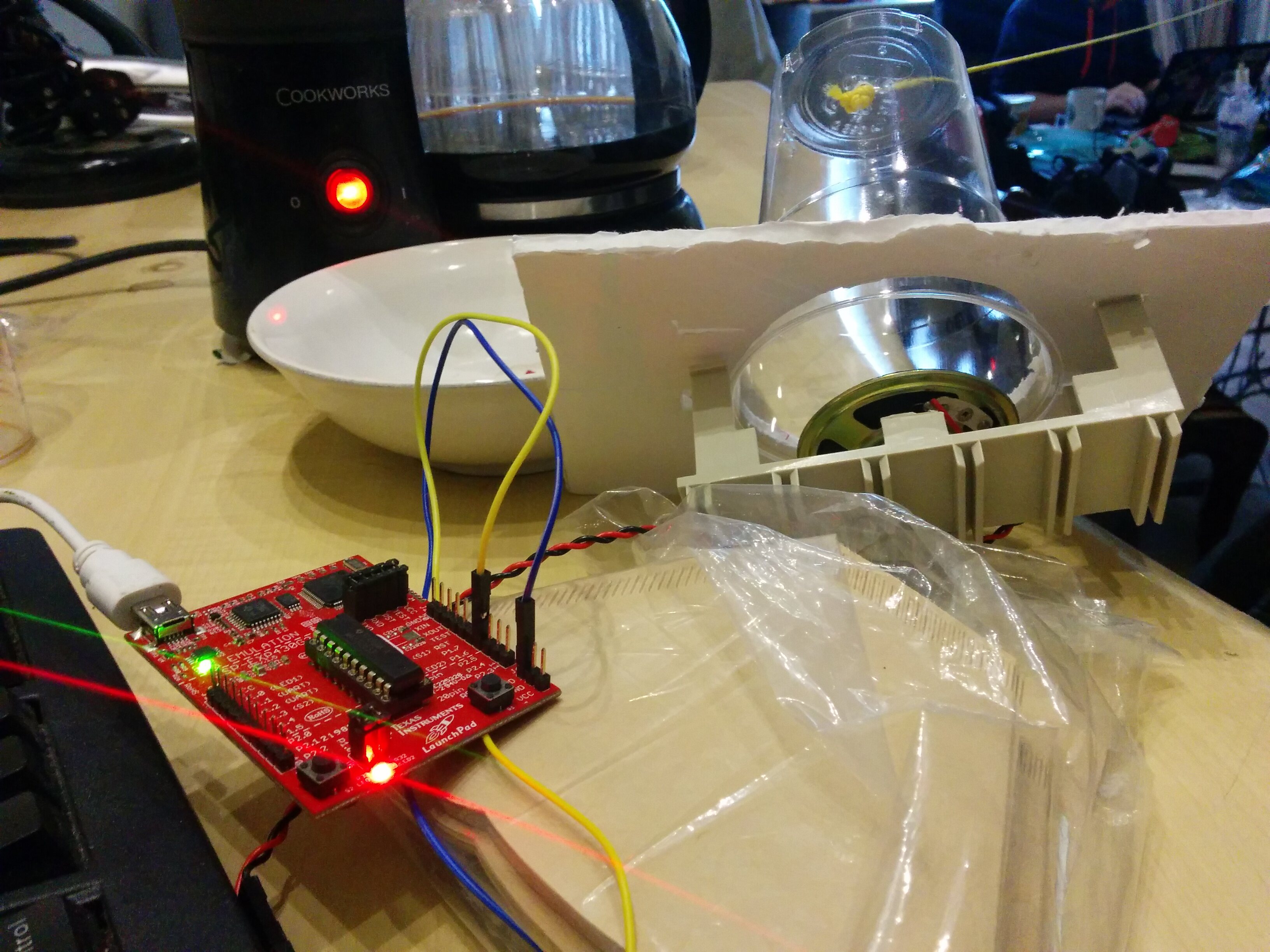In the
last post
I showed an animated gif of the of the post source run
through sent.

This gif was super easy to make manually, I ran sent on the post source file,
then I ran
my screenshot tool
from dmenu on each slide. I stepped through
each slide manually.
For a long presentation, or if I might do this more often I would probably
automate this in some way.
I was left with a directory of files call 1.png, 2.png, for each of the slides.
I used the convert tool from imagemagick to turn these into an animated gif.
$ convert -delay 100 -loop 0 *.png sent.gif
Animated gifs can be played with the animated tool from imagemagick to see how
the delay is working.
This weekends
In The Other BSD's
section had a link to a
nycbug
thread
about presentation software. That was strangely apropos, last week I
made slides for a
lightning talk
using my own template and beamer just
exploded. I fixed the issue with beamer, I was pretty upset, upset enough to
try looking for other software to use when I can.
At the start of the nycbug thread
suckless sent
is mentioned. sent is a
really simple presentation tool that, it takes some input files and shows them
as a slideshow. No pdf output, no templates, just a presentation.
sent isn't packaged in FreeBSD, suckless make it rather easy to build their
tools(you normally edit a header and rebuild to do config) so I
grabbed the
source
and built it.
I had to add some search paths to get it to build:
$ git diff
diff --git a/config.mk b/config.mk
index ed08199..6f5f3e4 100644
--- a/config.mk
+++ b/config.mk
@@ -11,8 +11,9 @@ X11INC = /usr/X11R6/include
X11LIB = /usr/X11R6/lib
# includes and libs
-INCS = -I. -I/usr/include -I/usr/include/freetype2 -I${X11INC}
-LIBS = -L/usr/lib -lc -lm -L${X11LIB} -lXft -lfontconfig -lX11 -lpng
+INCS = -I. -I/usr/include -I/usr/include/freetype2 -I${X11INC} -I/usr/local/include -I/usr/local/include/freetype2
+
+LIBS = -L/usr/lib -L/usr/local/lib -lc -lm -L${X11LIB} -lXft -lfontconfig -lX11 -lpng
# flags
CPPFLAGS = -DVERSION=\"${VERSION}\" -D_XOPEN_SOURCE=600
Sent just expects paragraphs of text.

For the past month or two the uboot on the FreeBSD RPI-B images has been unable
to boot on most sd cards. This weekend a new version of uboot was released and
new images were created. The new images boot no problem and I am finally able
to try this cheap 5 inch screen I got on ebay.


This weekend was the first
57N Stupid Shit No One Needs Hackathon
. I tried
this weekend to perform serial comms over a string and cup using the msp430
based TI Launchpad.
I had the tone generation working really quickly and then spent 15 hours trying
to demod and tones and find a byte stream using a microphone. I had no chance,
it didn't work at all.
I was able to transmit the tone a long the string over 3 meters of room. So the
core idea does work. I think I will try this project again after reading some
more dsp.

Hibby and I were happy to announce the first
57N Stupid Shit No One Needs
Hackathon
this week. It isn't often that you come across a
strange
link
in your search history and it turns into an awesome event, we seem
to have beaten the odds.
The first Stupid hackathon I read about produced some of the coolest ideas for
pointless things I have ever seen. The best one to make the event clear has to
be
endless.horse
.
So what are you going to do Tom?
Of the many terrible ideas I have each day, only a few are worth spending 48
hours polishing to death. This coming weekend I have decided to take two
technologies I have been gradually learning, mirco controllers and DSP, and
build the most terrifyingly bad things I can think of.
So tomorrow prepare yourself to see the start of a paper cup and string
telegraph being forged in 57North Hacklab.



